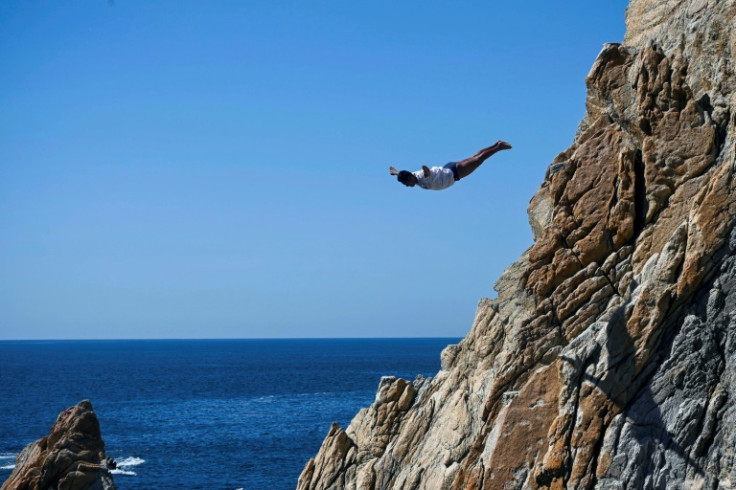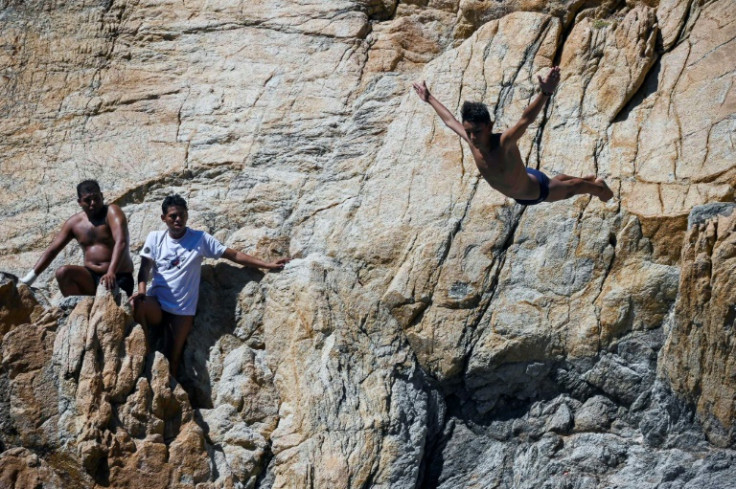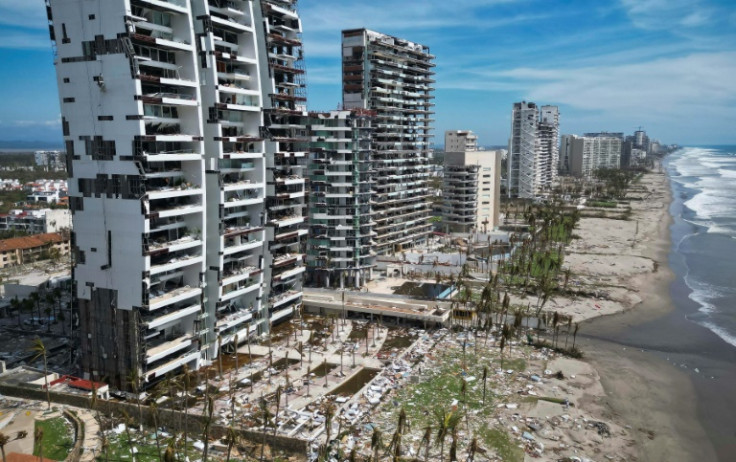Acapulco's Cliff Divers Are Back After Deadly Hurricane

With few tourists watching the daring feat, Abraham Estrada dives off La Quebrada, an emblematic Acapulco cliff where the spectacle has resumed but struggles to attract visitors after the Mexican resort was hammered by Hurricane Otis.
The devastating storm -- recorded at top-intensity Category 5 when it roared ashore in late October -- left nearly 50 people dead and another 30 missing, some 90 percent of tourist establishments affected and the once-vibrant port city licking its wounds.
As cliff-diving returned this month, the tourism industry has hoped for a much-needed rebound, but it has been slow to take off.
"We are having a hard time, due to the lack of tourism... We are hoping with faith that this holiday season will bring some" travelers, Estrada tells AFP.
The 36-year-old has been cliff-diving for 22 years, a tradition that has run in his family's blood for nearly a century, his father and grandfather divers before him.
According to the Acapulco mayor's office, at the end of the year -- a peak tourism season -- there are just 2,890 available hotel rooms in 91 establishments, compared with 20,000 rooms on offer prior to Otis.
In the days since the cliff-diving resumed, there have been only two La Quebrada shows per day, compared with five before the hurricane, explains Estrada, whose repertoire includes leaping off the rocky promontory while enveloped in flames and plunging into the water nearly 50 meters (164 feet) below.
"La Quebrada is a world icon of Acapulco," Estrada says of the spectacle featured in the 1948 movie "Tarzan and the Mermaids," in which star Johnny Weissmuller dives shirtless into the Pacific.
Estrada himself saw his home damaged and furniture destroyed by Otis, and the facilities from which the dives are observed, including a hotel, were devastated.
Divers' income has sunk like a stone, given how few tourists are paying the roughly $5 entry fee and accompanying tips.
Estrada has an advantage of being a lawyer by trade to improve his finances. That cannot be said for Juan Francisco Cruz, a professional diver who derives his only income from his cliffside artistry.
"It used to be a show," Cruz laments, noting just three tourists in attendance.
"Now there is no movement, there are no people and it has really affected us."
But he expresses confidence that Acapulco will bounce back, and says divers are waiting "with open arms" for more tourists.



© Copyright AFP 2024. All rights reserved.





















